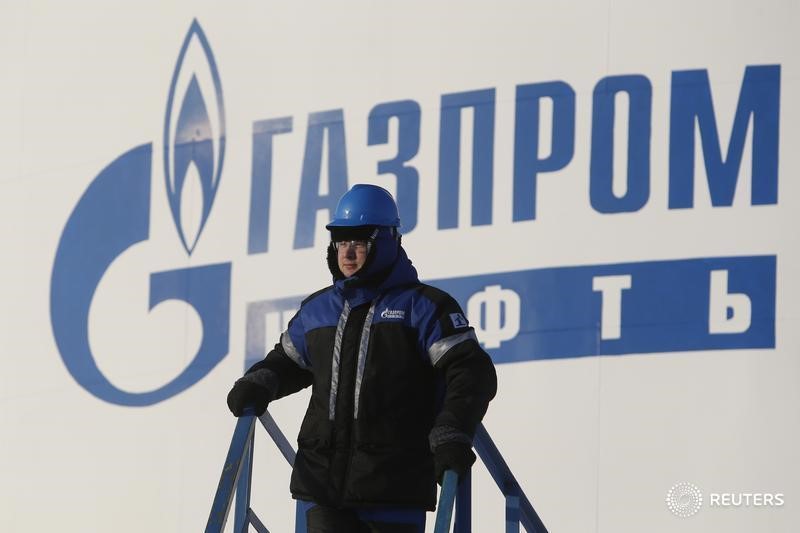(Bloomberg) -- Just as Prime Minister Theresa May was spelling out the U.K.’s response Wednesday to the poisoning of a former spy on British soil, European investors were helping a state-owned Russian company do brisk business in the bond market.
Demand was so high for a 750 million-euro ($927 million) bond sale from Moscow-based Gazprom (MCX:GAZP) PJSC that the energy giant was able to cut its borrowing costs by knocking about 38 basis points off its yield. Most of the demand for the oversubscribed bond came from continental Europe, but there were also some buyers from the U.K., according to VTB Capital, which helped organize the sale.
A successful sale may give a lift to President Vladimir Putin’s government as it prepares to come to the market with its own Eurobond before the end of the month. Russian markets retreated on Wednesday, with the nation’s MOEX Russia index of stocks falling the most in two weeks, after May announced measures against Russia that included the expulsion of 23 diplomats.
“It would be Putin’s style to place the bond now and declare it as a kind of victory,” said Peter Schottmueller, the head of asset allocation at Deka Investment GmbH in Frankfurt. “Despite the diplomatic issues, the capital markets are still buying Russian assets.”
Russia is preparing retaliatory measures against what it has called “crazy accusations” from the U.K. that it played a role in the chemical poisoning of Sergei Skripal and his daughter Yulia. Russia is likely, at the very least, to expel a similar number of British diplomats, but a statement from the Foreign Ministry suggested it would go further.
Russian stocks and the ruble rebounded on Thursday, with the currency climbing the most in emerging markets against the dollar following a three-day slump.
The market showed through the Gazprom sale that it hasn’t “fully digested” the geopolitical risks, said Dmitry Gladkov, global head of financing at Renaissance Capital Ltd. in London. “It’s still too early to say whether the market is jittery because events are still developing.”
